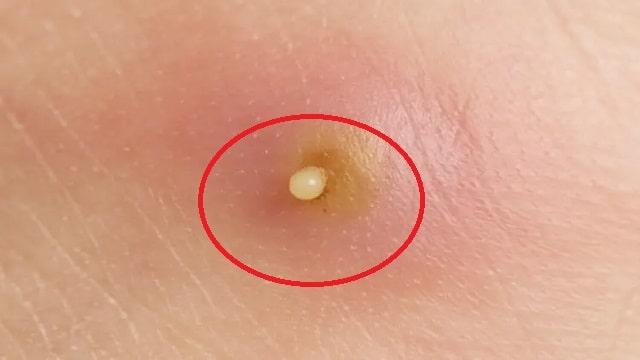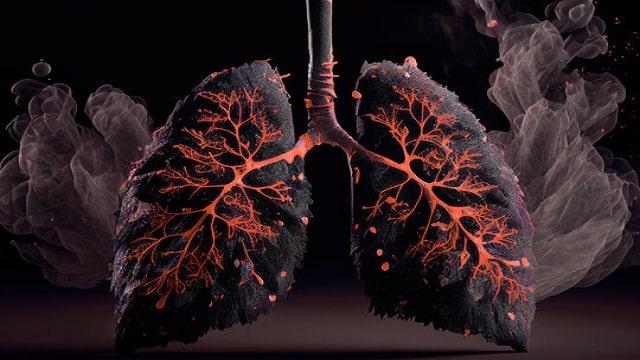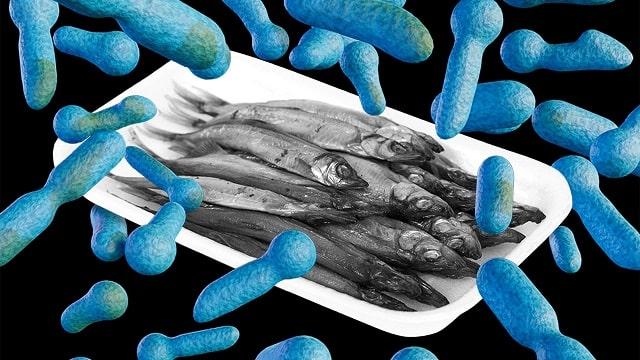
Boil Symptoms, Risk Factors & Treatment | Diseases List A-Z
Boils are painful, pus-filled red bumps on the skin.
They are caused by a bacterial infection that causes inflammation in the hair follicles, which are the holes where hair grows.
There are several parts of the body that often experience boils such as the face, neck, armpits, shoulders, buttocks, and thighs.
This condition usually occurs because these parts often experience friction and sweat.
This condition also often occurs in the eyelid area.
Most people call it a stye.
Symptoms of Boils The main symptom of boils is the appearance of red lumps on the skin.
In the early stages, the size will tend to be small, but the condition can be accompanied by: The skin around the lump turns red, feels warm to the touch, and is swollen.
This is a sign that the infection has spread to the surrounding skin.
The lump grows larger and contains pus.
A white dot forms at the top of the lump.
This condition generally rarely requires medical treatment, as it can heal on its own.
However, you should see a doctor if: The boils enlarge and feel very painful.
The condition where more than one boil grows in one location (coir boil), this condition is considered a more serious infection.
Located inside the nose, or growing on the face or spine.
Does not heal for more than 14 days.
Frequent relapses.
There is a problem with the immune system, which can cause it to appear.
Causes of Boils The main cause is the bacteria Staphylococcus aureus.
This bacteria is usually found on the skin or in the human nose.
However, these bacteria do not cause infections.
New infections occur when the bacteria enter the hair follicles, through scratches or insect bites.
Something that needs to be monitored is that the bacteria that cause it can spread to other parts of the body, even to the bones.
In some cases, this spread can trigger sepsis.
This condition has the potential to cause infections in internal organs such as the heart.
Risk Factors There are at least several risk factors that can trigger boils, such as: Direct contact with sufferers.
The risk of this infectious disease will increase if there is frequent direct contact with sufferers, for example because they live in the same house.
Age and gender.
This disease is more common in teenagers, especially boys.
Poor hygiene, both personal and environmental.
A weak immune system, for example having HIV, diabetes, or undergoing chemotherapy.
Having skin problems, such as frequent acne.
Types of Boils There are several types of boils that you need to know, including: Furuncle or carbuncle Furuncles and carbuncles are boil conditions caused by Staphylococcus aureus.
Although the causes are the same, there are a number of differences between furuncles and carbuncles, namely: Carbuncles usually involve a group of hair follicles, so they can be larger than a regular furuncle.
Carbuncles can have one or more holes in the skin and cause symptoms such as fever or chills.
Carbuncles are a more serious skin condition.
When you have multiple carbuncles, it is known as carbunculosis.
This skin condition needs to be treated by a doctor.
Cystic acne This is a type of boil that forms when oil and dead skin cells clog a hair follicle, creating a place where bacteria can grow and thrive.
Cystic acne affects deeper layers of the skin than regular acne.
It usually appears on the face and is often experienced by teenagers.
Hidradenitis suppurativa Hidradenitis suppurativa is a health problem that occurs when boils repeatedly develop under the armpit or groin area.
The infection begins in blocked sweat glands and hair follicles.
In mild cases, hidradenitis suppurativa can be cured with home care.
However, severe cases usually require surgical procedures to remove the sweat glands involved to stop the skin inflammation.
Pilonidal cyst This boil is quite unique and often appears in the buttocks crease.
Pilonidal cysts often start as small infections at the base of the skin area, which is where hair grows (hair follicles).
When experiencing irritation and pressure, over time the inflamed area will enlarge into a hard, painful, and soft lump.
Where this then makes the sufferer uncomfortable when sitting.
Pilonidal cysts often occur after sitting for too long.
In the early stages, doctors can usually easily recognize boils and their characteristics.
However, if the condition does not improve even after treatment, the doctor will conduct further examinations.
For example, taking a blood sample to be examined in a laboratory.
Complications of Boils Boils that are not treated properly can trigger complications, such as spreading to other parts of the body.
This spread can trigger serious health problems such as: Osteomyelitis.
Bone infection that occurs due to the spread of bacterial infection.
Endocarditis.
A disease caused by bacterial, germ, and fungal infections in one part of the heart (endocardium).
Sepsis.
A dangerous complication, triggered by the body’s response to infection.
Usually, this condition can cause a decrease in blood pressure.
Boils Treatment Generally, boils can be cured with simple steps at home and rarely require medical treatment by a doctor.
Here are some simple ways to speed up the healing process of boils: Compress it with warm water.
Do this at least three times a day.
This will reduce the pain and encourage pus to collect at the top of the lump.
Clean the broken area with gauze along with alcohol and antibacterial soap.
Don’t forget to apply ointment and wrap the ruptured boil with sterile gauze.
Change the bandage frequently (two to three times a day).
Wash your hands with soap before and after treating boils.
However, large boils should be treated by a doctor.
The doctor will usually cut open the boil to remove the pus.
In addition, the doctor will also prescribe antibiotics to treat boils if: With severe infection.
Appears with a fever.
Another complication.
Recommended Medications for Treating Boils Make sure not to forcefully pop the boil.
This can actually worsen the infection and spread bacteria, potentially triggering complications.
Doctors recommend waiting for the boil to burst on its own.
Boil sufferers can also take painkillers to reduce the pain.
Here are some recommendations: Liposin Ointment 10 g.
Contains 3 antibiotics namely neomycin, bacitracin, and polymixin which can be used to treat infections caused by gram-negative bacteria.
Pirotop Cream 10 g.
Topical medication containing mupirocin calcium, to treat traumatic skin lesions, secondary infections, and wounds caused by staphylococcus aureus and streptococcus pyogenes.
Nebacetin Ointment 5 g.
A drug containing neomycin sulfate and bacitracin, to treat skin and mucosal diseases, especially those caused by bacterial infections.
Ichthyol Black Ointment 12 g.
Is a skin ointment containing ichthyol which is antibacterial, antifungal, and anti-inflammatory.
Can be used to treat eczema, psoriasis, acne, or boils.
Mertus Cream 10 gr.
Topical medication to treat primary and secondary infections, skin infections such as blisters, burns, post-operative wounds, and infected wounds.
Bactoderm 2% Cream 5 g.
Contains mupirocin to treat skin infections caused by gram-positive bacteria such as staphylococcus aureus and staphylococcus pyogenes, which cause impetigo, folliculitis, carbuncles, and boils.
Boils Prevention No need to worry, boils can be prevented by implementing the following methods: Always keep your skin clean to avoid bacteria, especially for those of you who have open wounds.
Clean your skin regularly with a special soap that contains antibacterial.
Cover open wounds with bandages to avoid the risk of infection.
Avoid sharing personal items with other people.
Do regular exercise and consume healthy, nutrient-rich foods to maintain your immune system.
Change clothes every day, and wash dirty clothes using soap and clean water.
.
Related Articles
health
Black Lung Disease Symptoms, Risk Factors & Treatment | Diseases List A-Z
November 12, 2024

Black Lung Disease Black lung disease (BLD) is the blackening of the lungs due to inhalation of coal mine dust over a long period of time.
This condition is also known as Coal Worker’s Pneumoconiosis or miner’s lung because it is commonly experienced by coal miners.
read morehealth
Botulism Symptoms, Risk Factors & Treatment | Diseases List A-Z
November 12, 2024

What is Botulism? Botulism is a serious health disorder in the form of poisoning.
The cause of this poisoning condition is the bacteria Clostridium botulinum.
read more